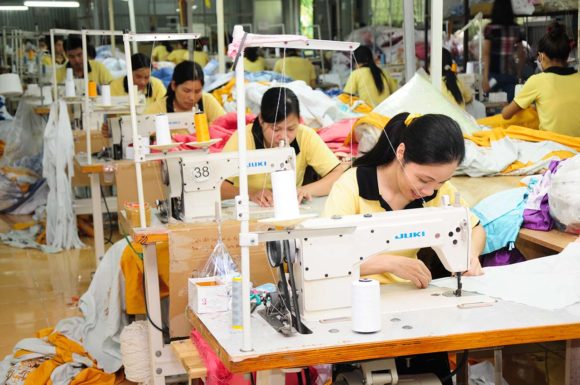
目次
Outline of Vietnam Free Trade Agreement (FTA)
A free trade agreement (FTA) is an agreement in which two or more countries / regions abolish or reduce trade-restrictive measures such as tariffs and import quotas within a certain period of time.
When two or more countries / regions reach an agreement on FTAs and international trading conditions, the relevant countries will determine customs duties on imports and exports. Since Vietnam was promoted to the World Trade Organization (WTO) in 2007 and has become closely associated with world trade, it has signed various free trade agreements.
Over the past few years, Vietnam has been actively diplomatic with countries around the world to conclude bilateral trade agreements. Since Vietnam is a member of the Association of Southeast Asian Nations (ASEAN), it also enjoys the benefits of FTAs from ASEAN countries.
Benefits of Free Trade Agreements (FTAs) in Vietnam

Thanks to the free trade agreement, Vietnam's economic development continues to shift from traditional low-technology exports of products and primary products to high-tech products that require advanced technology, such as electronics, machinery, automobiles and medical equipment. I am.
The first reason why Vietnam has such advanced technology is that it is possible to import cheaper materials and intermediate goods by diversifying procurement sources through a larger trading network. Because it came to be.
The second factor is that through alliances with foreign-affiliated companies, we are now able to acquire the knowledge and skills necessary to shift to high value-added production. As an example of this, Vingroup, a conglomerate representing Vietnam, has been manufacturing and developing smartphones in recent years.
As the environment surrounding Vietnam's manufacturing industry so far, it is common for foreign-affiliated companies such as Samsung and Nokia to establish an electronic equipment manufacturing factory in Vietnam and export it in order to utilize Vietnam's low labor costs. It was a target. However, in recent years, it is not uncommon for Vietnamese companies to acquire know-how and development technology through such alliances with foreign-affiliated companies and proceed with product development on their own.
It will help increase the labor productivity of Vietnam and expand the country's export capacity.
Under the Trans-Pacific Partnership (CPTPP) and EU-Vietnam Free Trade Agreement (EVFTA), Vietnam is promoting international trade outside of ASEAN.
Such a free trade agreement will lead to the development of trade with each member country of the ASEAN Economic Community (AEC), the EU, and will attract more and more foreign-affiliated companies, and will further reduce tariffs between the signatory countries. You can enjoy the benefits of.
Both the CPTPP and EVFTA require Vietnam to comply with International Labor Organization (ILO) standards. Therefore, ILO's Chang Lee states that it is an opportunity to modernize Vietnam's labor law and labor-management relations system.
Free Trade Agreement (FTA) Challenges in Vietnam
FTAs have some drawbacks. The FTA predicts increased imports of agricultural products, including meat and dairy products, from the EU, Australia and Canada, and Vietnamese local businesses must be in conflict with other countries.
Furthermore, in order to implement and operate FTAs smoothly, the Vietnamese government needs to continue to implement reforms such as strengthening guidance and regulations on banks, eliminating corruption, and improving legal and tax systems.
Growth through Free Trade Agreements (FTAs) in Vietnam
The Ministry of Planning and Investment of Vietnam predicts that the CPTPP will increase Vietnam's GDP by 1.3 points by 2035 and EVFTA will increase GDP by 15 percent.
CPTPP and EVFTA are expected to be an opportunity to increase Vietnam's competitiveness in the medium to long term.
To take advantage of Vietnam's Free Trade Agreement (FTA)
The regulations, rules and legal basis associated with FTAs are very complex. Companies will face a variety of challenges when using FTAs, including practical procedures. Due to the complexity of business, there are many examples of conducting international trade without using FTAs.
Therefore, it is highly recommended that companies and investors consult with experienced professionals when using FTAs in Vietnam. Performing a risk assessment before making an investment enables companies to make more credible and informative decisions.
Investment in Vietnam is Ho Chi Minh Suzuki Real Estate
We support rental and purchase of condominiums, offices and investment real estate, mainly in Ho Chi Minh, Vietnam.
Our strength is to provide buyers with accurate and accurate information in a timely manner.
This website introduces the latest news articles on real estate, economy, travel, and events related to Vietnam.
Based on my experience as a consultant in Hong Kong, the article also introduces real estate, management, accounting, tax, and labor affairs.
If you like, please take a look.

A real estate agent (with Level 1 bookkeeping qualification) who has been based in Ho Chi Minh City for six years.
Representative of Suzuki Property Vietnam.
To date, we have brokered over 1,000 rental transactions and over 200 sales transactions, primarily with Japanese clients.
We specialize in serviced apartments, condominiums, office brokerage, and real estate contract support for foreigners, and provide support in Japanese, English, and Chinese.


